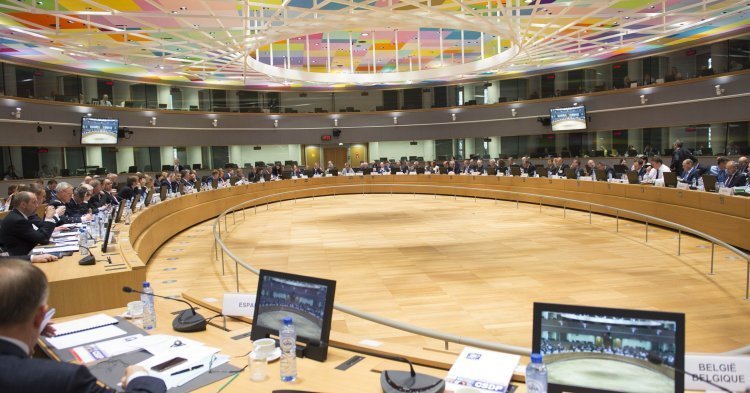In the European legislative system, legislation drafts are proposed by the European Commission and must be negotiated and jointly adopted by the European Parliament and the Council of the EU.
On the one hand, the European Parliament represents the citizens of the Union as its members are elected by direct vote of the people. On the other hand, the Council of the EU is the institution where ministers from each Member States’ governments hold a meeting, depending on their field of activity such as economy, agriculture or foreign affairs. The Council represents the interests of the Member States.
The EU legislation is therefore supposed to be adopted on the basis of a balance between the interests of the European citizens and the Member States. Nevertheless, the Council has been for a long time the very image of the democratic deficit in the EU. At the beginning of the European project, the European Parliament used to be reduced to a mere consultative body whereas the Council was at the core of the EU decision-making process.
A deadlock in the European democratic process
The role of the European Parliament has been significantly strengthened in order to address this imbalance and to enhance its legitimacy as the only European institution directly elected by the citizens.
Despite these efforts, the functioning of the Council still raises some issues. First, the democratic legitimacy of the Council derives from the accountability of its ministers before their national parliament. At first, this reasoning seems logical. However, it remains problematic with regards to the EU decision-making process. Ministers of the Council first and foremost represent their national governments with the short-term vision implied by their mandate.
Second, the voting system in the Council is quite complex. For the most sensitive topics, a decision in the Council must reach a qualified majority vote (representing 55% of the Member States and 65% of the EU population) or even a unanimity vote. The qualified majority vote benefits the most populous Member States and then forces the smallest ones to choose a side. The unanimity vote enables one State alone to veto any decision in the Council.
The Council of the EU, therefore, seems to be an institution functioning with non-transparent and diplomatic negotiations hardly compatible with its role of co-legislator in the EU legislative system. The Council is more akin to a battlefield where Member States fiercely protect their interests than a place where they can express their different opinions. The lack of visibility and the complexity of the Council eventually prevent the citizens from understanding clearly its functioning as well as its purpose.
The Council of the EU must be reformed
The Council of the EU must evolve towards a more transparent functioning. The European Parliament already represents the size of each Member States with a number of MEPs proportionate to their respective population. Conversely, the Council must be the institution where Member States are equally represented.
An identical number of elected European senators for each State would be wiser than ministers primarily appointed for their action at the national level. The European senators would have a longer mandate than their peers in the European Parliament which would enable them to be independent of their national government terms of office. The senators would, therefore, defend the interests of their State in the EU with a long-term vision.
The election of European senators by national parliaments would also improve their involvement in the EU decision-making process, considering many criticisms about the EU are based on the lack of participation of national parliaments in the EU. A European Senate of the Member States could simplify the functioning of the EU and could lead to more efficiency and more transparency in its institutions.
The replacement of the Council of the EU by a European Senate of the Regions could be an alternative solution. European regions are very close to the economic and social reality of the citizens. Regions would, therefore, be more relevant than the States to take part in the EU decision-making. Such a solution would however completely set the Member States aside from the EU legislative process.
Even though such reforms are not an issue on the agenda yet, the Council of the EU undeniably needs to change. European citizens barely know and hardly understand this institution and eventually get lost in the complexity of the EU institutional system.

Follow the comments: |
|
